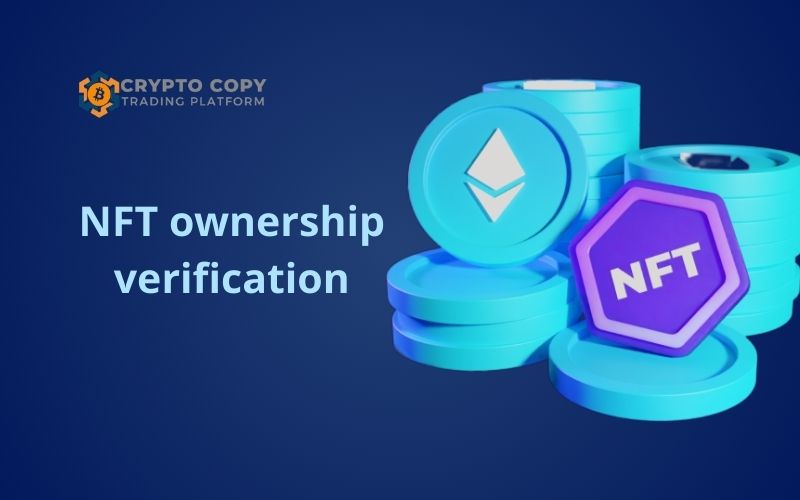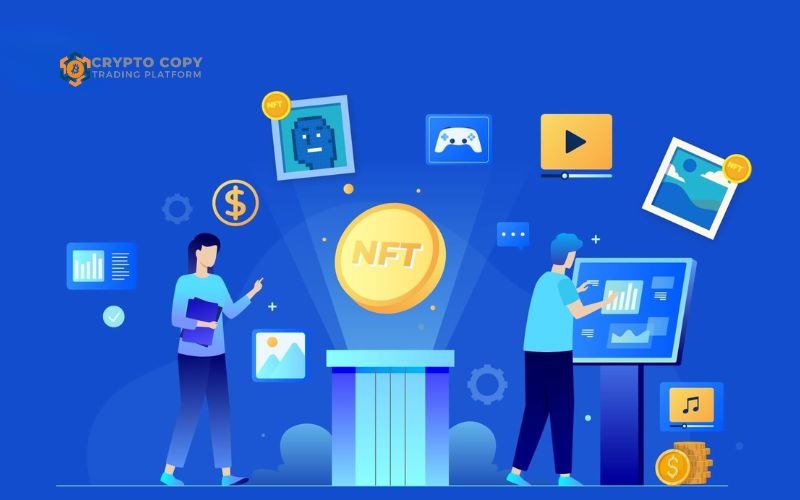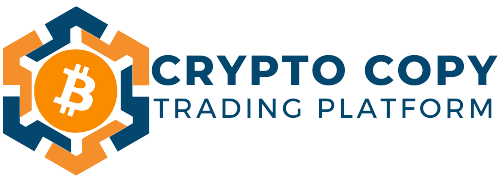In the promising yet risky world of NFTs, ownership verification has emerged as a critical factor. This article will decode the importance of NFT ownership verification, shedding light on the process and explaining why it is considered the golden key for investors to protect their assets and make informed decisions in the NFT market.
Contents
What is NFT ownership verification?
NFT ownership verification is the process of confirming that a specific wallet address is the legitimate owner of an NFT on the blockchain. This is carried out using public, transparent, and immutable data on networks like Ethereum or Solana. Ownership information is recorded in smart contracts, allowing anyone to verify authenticity without the need for intermediaries. This significantly reduces the risk of fraud, protecting buyers from fake transactions or asset disputes.

Beyond preventing counterfeits, ownership verification also serves as the foundation for many NFT based applications such as staking, rentals, or integration into games and the metaverse. Developers and platforms rely on verified ownership data to distribute rewards, airdrops, or grant exclusive access to genuine holders. Additionally, reputable marketplaces often include verification features to enhance transparency in transactions. With the support of blockchain technology, the verification process becomes both fast and accurate.
How NFT ownership verification works
NFT ownership verification is not only crucial for investors but also essential for artists, developers and businesses building ecosystems around digital assets. There are various methods to carry out this process, ranging from manually checking with blockchain tools to using specialized verification services. Below are three common ways to verify NFT ownership clearly and transparently.
Using blockchain explorers
Tools like Etherscan, OpenSea and DappRadar allow users to look up wallet addresses, tokenIDs, and the complete transaction history of an NFT. Thanks to blockchain transparency, all this data can be verified independently. You can also review the metadata to confirm the origin, creator name, and associated smart contract. This method of NFT ownership verification is simple yet effective, requiring no third party tools. It’s especially suitable for those with a basic understanding of blockchain technology.
Connecting wallet for verification
Connecting a cryptocurrency wallet is a popular method for quickly and accurately performing NFT ownership verification. This approach allows users to confirm NFT ownership without relying on third parties, ensuring privacy and security through digital signature authentication.
When connecting wallets like Metamask, Trust Wallet, or other compatible Web3 wallets, the verification platform will access and analyze the NFT information within the wallet. This process requires user consent and does not disclose private keys. The wallet verification process includes:
- Connecting the personal wallet to a supported verification platform such as Nifty Gateway, Manifold or other Web3 tools.
- The system scans the wallet to identify the NFTs the user holds, including the contract address and tokenID.
- Generate and sign a digital signature from the wallet to prove ownership without sharing sensitive information.
Practical applications of NFT ownership verification
NFT ownership verification has many important applications in the creative and technology industries. In the digital art field, it helps artists protect their work from copying and counterfeiting. It creates a transparent system that allows buyers and sellers to transact securely on NFT platforms and online collections. This not only drives the growth of the NFT community but also builds trust between participants.
Additionally, the ownership verification process is crucial in blockchain games and the metaverse. Gaming platforms can use this method to ensure players legitimately own in-game items, characters, or digital assets. This helps prevent fraud and creates a safe environment for players. With this authenticity and security, blockchain projects can enhance the user experience.
Important notes when verifying NFT ownership

When conducting NFT ownership verification, it’s crucial to only access official websites of verification platforms. Avoid clicking on suspicious or unknown links, as they may lead to phishing sites designed to steal your personal data or wallet keys. Make sure you’re using trusted sources and reputable tools to carry out ownership verification securely.
Before connecting your wallet to any verification platform, carefully review all permissions being requested. Do not grant unnecessary access rights to unknown apps or services. Limiting permissions helps protect your wallet from unauthorized access or potential attacks.
Lastly, always double check NFT details before making any transactions or sharing ownership proof. Confirm the metadata, token ID, and contract address to ensure the NFT is authentic and has been properly verified. This step helps you avoid the risk of purchasing counterfeit or unverified NFTs.
Why is NFT ownership verification important?
Verifying NFT ownership ensures the authenticity and origin of a digital asset, helping users avoid counterfeit or duplicated items. As fake NFTs become more common, ownership verification provides a secure way to trace the creator, minting date, and transaction history via blockchain. This transparency is essential, especially for high-value digital artworks. It builds trust among collectors and investors, which is crucial for a sustainable NFT market.
NFT ownership verification also protects the rights of legitimate owners, ensuring that any sale or transfer is clear and lawful. Verified ownership prevents fraud and supports a more transparent transaction process for both buyers and sellers. Many platforms require ownership confirmation before allowing NFT listings. This step reduces potential disputes and strengthens marketplace reliability.
Moreover, verification is often mandatory to access exclusive benefits in NFT ecosystems. Projects may limit participation in events, communities, or airdrops to verified holders only. As such, it not only safeguards assets but also unlocks opportunities that come with verified ownership. These benefits encourage long-term holding and reinforce investor confidence in the project’s value.
At Crypto Copy Trading Platform, we provide detailed insights, reliable tools, and timely updates on NFT trends and investment strategies. Follow us to make smarter and safer decisions in the world of digital assets.
